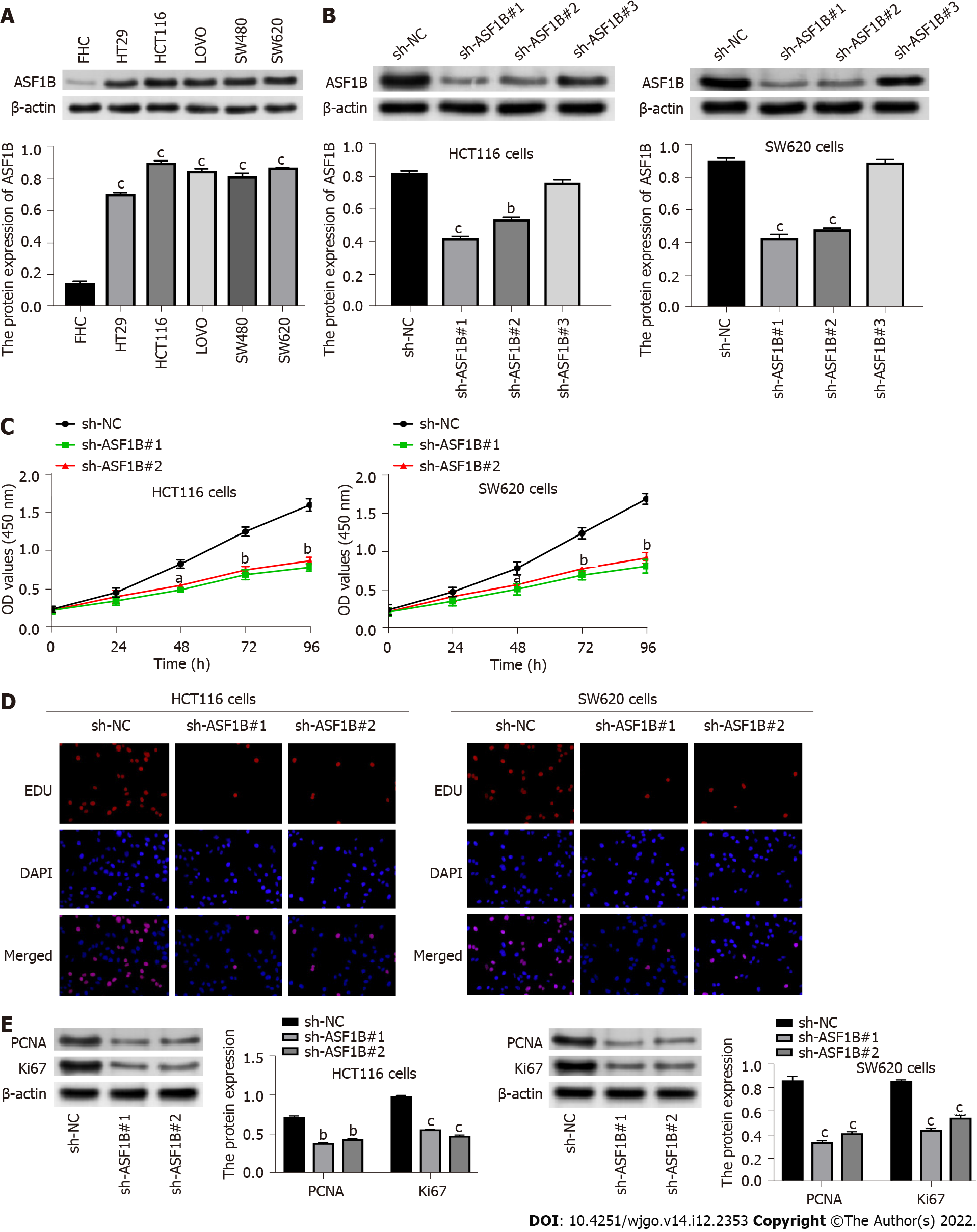Copyright
©The Author(s) 2022.
World J Gastrointest Oncol. Dec 15, 2022; 14(12): 2353-2366
Published online Dec 15, 2022. doi: 10.4251/wjgo.v14.i12.2353
Published online Dec 15, 2022. doi: 10.4251/wjgo.v14.i12.2353
Figure 2 Silencing of anti-silencing function 1B impairs proliferation of colorectal cancer cells.
A: The protein expression of anti-silencing function 1B (ASF1B) was detected by western blot in FHC, HT29, HCT116, LOVO, SW480 and SW620 cells; B: The protein expression of ASF1B was detected by western blot in HCT116 and SW620 cells after transfection of sh-ASF1B#1, sh-ASF1B#2 or sh-ASF1B#3; C and D: The proliferation of HCT116 and SW620 cells was evaluated by Cell Counting Kit-8 and 5-Ethynyl-2’-Deoxyuridine assays after transfection of sh-ASF1B#1 or sh-ASF1B#2; E: Protein levels of PCNA and Ki67 were examined by western blot in HCT116 and SW620 cells after transfection of sh-ASF1B#1 or sh-ASF1B#2. aP < 0.05, bP < 0.01, cP < 0.001. Each experiment was repeated three times. ASF1B: Anti-silencing function 1B; NC: Negative control.
- Citation: Yu GH, Gong XF, Peng YY, Qian J. Anti-silencing function 1B knockdown suppresses the malignant phenotype of colorectal cancer by inactivating the phosphatidylinositol 3-kinase/AKT pathway. World J Gastrointest Oncol 2022; 14(12): 2353-2366
- URL: https://www.wjgnet.com/1948-5204/full/v14/i12/2353.htm
- DOI: https://dx.doi.org/10.4251/wjgo.v14.i12.2353









